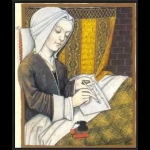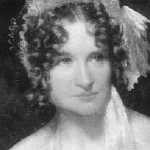For Cynthia
When he would not return to fine garments and good food, to his houses and his people, Loingseachan told him, “Your father is dead.” “I’m sorry to hear it,” he said. “Your mother is dead,” said the lad. “All pity for me has gone out of the world.” “Your sister, too, is dead.” “The mild sun rests on every ditch,” he said; “a sister loves even though not loved.” “Suibhne, your daughter is dead.” “And an only daughter is the needle of the heart.” “And Suibhne, your little boy, who used to call you “Daddy”—he is dead.” “Aye,” said Suibhne, “that’s the drop that brings a man to the ground.”
He fell out of the yew tree; Loingseachan closed his arms around him and placed him in manacles.
—AFTER THE MIDDLE-IRISH romance, THE MADNESS OF SUIBHNE
1
When the new fallen soldiers froze
In Asia’s steep ravines and fouled the snows,
When I was torn
By
love I could not still,
By
fear that silenced my cramped mind
To that cold
war where,
lost, I could not find
All those days we could keep
Your mind a landscape of new snow
Where the chilled tenant-farmer finds, below,
His fields asleep
In their smooth covering, white
As quilts to warm the resting bed
Of
birth or pain, spotless as paper spread
For me to write,
And thinks: Here lies my land
Unmarked by agony, the lean foot
Of the weasel tracking, the thick trapper’s boot;
And I have planned
My chances to restrain
The torments of demented
summer or
Increase the deepening harvest here before
It snows again.
2
Late April and you are three; today
We dug your garden in the yard.
To curb the damage of your play,
Strange dogs at
night and the moles tunneling,
Four slender sticks of lath stand guard
Uplifting their thin string.
So you were the first to tramp it down.
And after the earth was sifted close
You brought your watering can to drown
All earth and us. But these mixed seeds are pressed
With light loam in their steadfast rows.
Child, we’ve done our best.
Someone will have to weed and spread
The young sprouts. Sprinkle them in the hour
When shadow falls across their bed.
You should try to look at them every day
Because when they come to full flower
I will be away.
3
The child between them on the street
Comes to a puddle, lifts his feet
And hangs on their hands. They start
Recoil to swing him through the
weather,
Stiffen and pull apart.
We read of cold war soldiers that
Never gained ground, gave none, but sat
Tight in their chill trenches.
Pain seeps up from some cavity
The whole jaw grinds and clenches
Till something somewhere has to give.
It’s better the poor soldiers live
In someone else’s hands
Than drop where helpless powers fall
On crops and barns, on towns where all
Will burn. And no man stands.
For good, they sever and divide
Their won and lost land. On each side
Prisoners are returned
Excepting a few unknown names.
The peasant plods back and reclaims
His fields that strangers burned
And nobody seems very pleased.
It’s best. Still, what must not be seized
Clenches the empty fist.
I tugged your hand, once, when I hated
Things less: a mere game dislocated
The radius of your wrist.
Love’s wishbone, child, although I’ve gone
As men must and let you be drawn
Off to appease another,
It may help that a Chinese play
Or Solomon himself might say
I am your real mother.
4
No one can tell you why
the season will not wait;
the night I told you I
must leave, you wept a fearful rate
to stay up late.
Now that it’s turning Fall,
we go to take our walk
among municipal
flowers, to steal one off its stalk,
to try and talk.
We huff like windy giants
scattering with our breath
gray-headed dandelions;
spring is the cold wind's aftermath.
The poet saith.
But the asters, too, are gray,
ghost-gray. Last night’s cold
is sending on their way
petunias and dwarf marigold,
Like nerves caught in a graph,
the morning-glory vines
frost has erased by half
still scrawl across their rigid twines.
Like broken lines
of verses I can’t make.
In its unraveling loom
we find a flower to take,
with some late buds that might still bloom,
back to your room.
Night comes and the stiff dew.
I’m told a friend’s child cried
because a cricket, who
had minstreled every night outside
her window, died.
5
Winter again and it is snowing;
Although you are still three,
You are already growing
Strange to me.
You chatter about new playmates, sing
Strange songs; you do not know
Hey ding-a-ding-a-ding
Or where I go
Or when I sang for bedtime, Fox
Went out on a chilly night,
Before I went for walks
And did not write;
You never mind the squalls and storms
That are renewed long since;
Outside the thick
snow swarms
Into my prints
And swirls out by warehouses, sealed,
dark cowbarns, huddled, still,
Beyond to the blank field,
The fox’s hill
Where he backtracks and sees the paw,
Gnawed off, he cannot feel;
Conceded to the jaw
Of toothed, blue steel.
6
Easter has come around
again; the
river is rising
over the thawed ground
and the banksides. When you come you bring
an egg dyed lavender.
We shout along our bank to hear
our voices returning from the hills to meet us.
We need the landscape to repeat us.
You lived on this bank first.
While nine months filled your term, we knew
how your lungs, immersed
in the womb, miraculously grew
their useless folds till
the fierce, cold air rushed in to fill
them out like bushes thick with leaves. You took your hour,
caught breath, and cried with your full lung
power.
Over the stagnant bight
we see the hungry bank swallow
flaunting his free flight
still; we sink in mud to follow
the killdeer from the grass
that hides her nest. That March there was
rain; the rivers
rose; you could hear killdeers flying
all night over the mudflats crying.
You bring back how the red-
winged blackbird shrieked, slapping frail wings,
diving at my head—
I saw where her tough nest, cradled, swings
in tall reeds that must sway
with the winds blowing every way.
If you recall much, you recall this place. You still
live nearby—on the opposite hill.
After the sharp windstorm
of July Fourth, all that summer
through the gentle, warm
afternoons, we heard great chain saws chirr
like iron locusts. Crews
of roughneck boys swarmed to cut loose
branches wrenched in the shattering
wind, to hack free
all the torn limbs that could sap the tree.
In the debris lay
starlings, dead. Near the park’s birdrun
we surprised one day
a proud, tan-spatted, buff-brown pigeon.
In my hands she flapped so
fearfully that I let her go.
Her keeper came. And we helped snarl her in a net.
You bring things I’d as soon forget.
You raise into my head
a Fall night that I came once more
to sit on your bed;
sweat beads stood out on your arms and fore-
head and you wheezed for breath,
for help, like some child caught beneath
its comfortable woolly blankets, drowning there.
Your lungs caught and would not take the air.
Of all things, only we
have power to choose that we should die;
nothing else is free
in this world to refuse it. Yet I,
who say this, could not raise
myself from bed how many days
to the thieving world. Child, I have another wife,
another child. We try to choose our
life.
7
Here in the scuffled dust
is our ground of play.
I lift you on your swing and must
shove you away,
see you return again,
drive you off again, then
stand quiet till you come.
You, though you climb
higher, farther from me, longer,
will fall back to me stronger.
Bad penny, pendulum,
you keep my constant time
to bob in blue July
where fat goldfinches fly
over the glittering, fecund
reach of our growing lands.
Once more now, this second,
I hold you in my hands.
8
I thumped on you the best I could
which was no use;
you would not tolerate your food
until the sweet, fresh milk was soured
with lemon juice.
That puffed you up like a fine yeast.
The first
june in your yard
like some squat Nero at a feast
you sat and chewed on white, sweet clover.
That is over.
When you were old enough to walk
we went to feed
the rabbits in the park milkweed;
saw the paired monkeys, under lock,
consume each other's salt.
Going
home we watched the slow
stars follow us down Heaven’s vault.
You said, let’s catch one that comes low,
pull off its skin
and cook it for our dinner.
As absentee bread-winner,
I seldom got you such cuisine;
we ate in local restaurants
or bought what lunches we could pack
in a brown sack
with stale, dry bread to toss for ducks
on the green-scummed lagoons,
crackers for porcupine and fox,
life-savers for the footpad coons
to scour and rinse,
snatch after in their muddy pail
and stare into their paws.
When I moved next door to the jail
I learned to fry
omelettes and griddlecakes so I
could set you supper at my table.
As I built back from helplessness,
when I grew able,
the only possible answer was
you had to come here less.
This Hallowe’en you come one week.
You masquerade
as a vermilion, sleek,
fat, crosseyed fox in the parade
or, where grim jackolanterns leer,
go with your bag from door to door
foraging for treats. How queer:
when you take off your mask
my neighbors must forget and ask
whose child you are.
Of course you lose your appetite,
whine and won’t touch your plate;
as local law
I set your place on an orange crate
in your own room for days. At night
you lie asleep there on the bed
and grate your jaw.
Assuredly your father’s crimes
are visited
The time’s up. Now our pumpkin sees
me bringing your suitcase.
He holds his grin;
the forehead shrivels, sinking in.
You break this year’s first crust of snow
off the runningboard to eat.
We manage, though for days
I crave sweets when you leave and know
they rot my teeth. Indeed our sweet
foods leave us cavities.
9
I get numb and go in
though the dry ground will not hold
the few dry swirls of snow
and it must not be very cold.
and I don’t know
or see much right to ask.
Or what use it could be to know.
In three months since you came
the leaves have fallen and the snow;
your pictures pinned above my desk
seem much the same.
Somehow I come to find
myself upstairs in the third floor
museum’s halls,
walking to kill my
time once more
among the enduring and resigned
stuffed animals,
where, through a century’s
caprice, displacement and
known treachery between
its wars, they hear some old command
and in their peaceable kingdoms freeze
to this still scene,
Nature Morte. Here
by the door, its guardian,
the patchwork dodo stands
where you and your stepsister ran
laughing and pointing. Here, last year,
you pulled my hands
and had your first, worst quarrel,
so toys were put up on your shelves.
Here in the first glass cage
the little bobcats arch themselves,
still practicing their snarl
of constant rage.
The bison, here, immense,
shoves at his calf, brow to brow,
and looks it in the eye
to see what is it thinking now.
I forced you to obedience;
I don’t know why.
Still the lean lioness
beyond them, on her jutting ledge
of shale and desert shrub,
stands watching always at the edge,
stands hard and tanned and envious
above her cub;
with horns locked in tall heather,
two great Olympian Elk stand bound,
fixed in their lasting hate
till hunger brings them both to ground.
Whom equal weakness binds together
none shall separate.
Yet separate in the ocean
of broken ice, the white bear reels
beyond the leathery groups
of scattered, drab Arctic seals
arrested here in violent motion
like Napoleon’s troops.
Our states have stood so long
at war, shaken with
hate and dread,
they are paralyzed at bay;
once we were out of reach, we said,
we would grow reasonable and strong.
Some other day.
Like the cold men of Rome,
we have won costly fields to sow
in salt, our only seed.
Nothing but injury will grow.
I write you only the bitter poems
that you can’t read.
Onan who would not breed
a child to take his brother’s bread
and be his brother’s birth,
rose up and left his lawful bed,
went out and spilled his seed
in the cold earth.
I stand by the unborn,
in jars of alcohol,
that waken to no other world,
unchanging, where no eye shall mourn.
I see the caul
that wrapped a kitten, dead.
I see the branching, doubled throat
of a two-headed foal;
I see the hydrocephalic goat;
here is the curled and swollen head,
there, the burst skull;
skin of a limbless calf;
a horse’s foetus, mummified;
mounted and joined forever,
the Siamese twin dogs that ride
belly to belly, half and half,
that none shall sever.
I walk among the growths,
by gangrenous tissue, goiter, cysts,
by fistulas and cancers,
where the malignancy man loathes
is held suspended and persists.
And I don’t know the answers.
The window’s turning white.
The world moves like a diseased heart
packed with ice and snow.
Three months now we have been apart
less than a mile. I cannot fight
or let you go.
10
The vicious winter finally yields
the green winter wheat;
the farmer, tired in the tired fields
he dare not leave, will eat.
Once more the runs come fresh; prevailing
piglets, stout as jugs,
harry their old sow to the railing
to ease her swollen dugs
and game colts trail the herded mares
that circle the pasture courses;
our seasons bring us back once more
like merry-go-round horses.
With crocus mouths, perennial hungers,
into the park Spring comes;
we roast hot dogs on old coat hangers
and feed the swan bread crumbs,
pay our respects to the peacocks, rabbits,
and leathery Canada goose
who took, last Fall, our tame white habits
and now will not turn loose.
In full regalia, the pheasant cocks
march past their dubious hens;
the porcupine and the lean,
red fox
trot around bachelor pens
and the miniature painted train
wails on its oval track:
you said, I’m going to Pennsylvania!
and waved. And you’ve come back.
If I loved you, they said I’d leave
and find my own affairs.
Well, once again this April, we’ve
come around to the bears;
punished and cared for, behind bars,
the coons on bread and water
stretch thin black fingers after ours.
And you are still my daughter.



















Comment form: